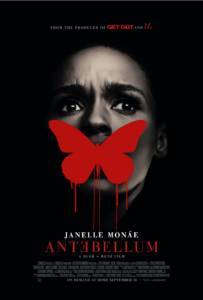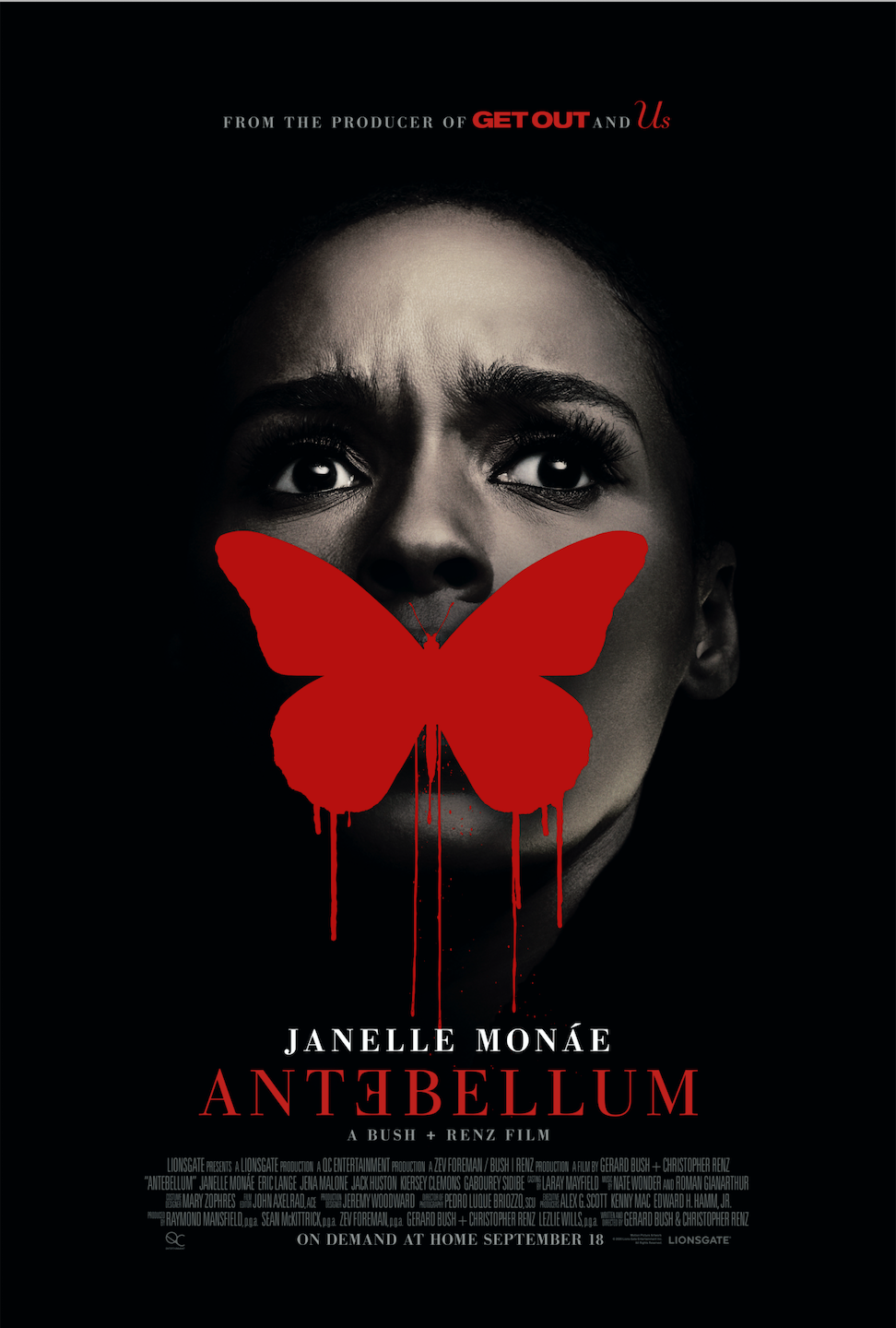 Antebellum could have been a seminal film for the times – if the story made any sense. It aims high, but gets bogged down in a metaphorical morass about past and present issues relating to race, class and gender. The film is billed as a high-concept psychological thriller/horror movie from the producers of the Jordan Peele gems Get Out and Us. But it fails to measure up, and the ending is far from satisfying. Fortunately, it was under two hours so the time did not feel like a total waste. More like a disappointment.
Antebellum could have been a seminal film for the times – if the story made any sense. It aims high, but gets bogged down in a metaphorical morass about past and present issues relating to race, class and gender. The film is billed as a high-concept psychological thriller/horror movie from the producers of the Jordan Peele gems Get Out and Us. But it fails to measure up, and the ending is far from satisfying. Fortunately, it was under two hours so the time did not feel like a total waste. More like a disappointment.
Janelle Monáe (Hidden Figures, Moonlight) plays Veronica Henley, a sociologist and best-selling author whose works explore the disenfranchisement of black people in the U.S. While out on a speaking engagement in New Orleans, Veronica gets trapped in a horrific scenario that connects her to a Civil War-era slave named Eden (also played by Monáe). Her performance is far better than the story, which is meant to be a mind-bender mystery that unfolds as a metaphor for racism. The film starts as a fairly conventional slavery movie replete with beatings, rapes and subjugation in the cotton fields, before invoking the big twist (not a spoiler – since it’s part of the logline and in the trailer) that the past, present and future are all intertwined. The wartime cinematography and score have an epic vibe that diminishes as the contemporary drama takes root.
Antebellum was written and directed by advocacy filmmakers Gerard Bush and Christopher Renz, best known for cause-based short films and music videos. Their social justice point is well taken, but their long-form delivery needs work.
Antebellum debuts on premium on-demand platforms September 18th.

